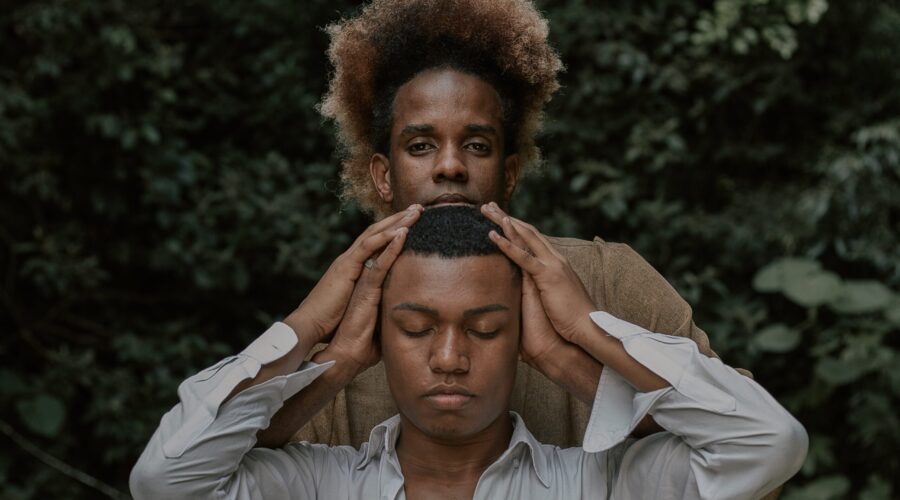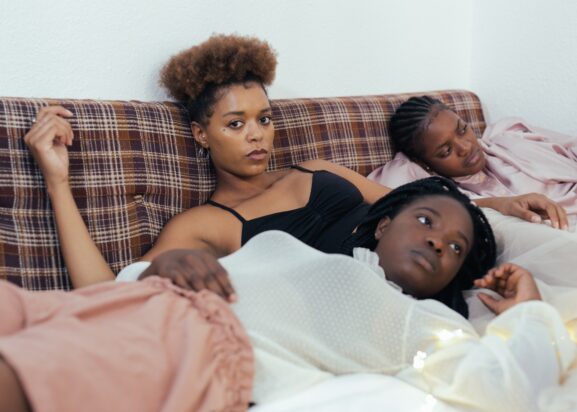Black Mental Health Matters: Breaking the Stigma and Promoting Wellness
The Black community often adopts a resilient attitude in the face of hardship and oppression. Yet, the veils of strength and invulnerability can only hold up so much in a world that continues to show how little it values one’s livelihood.
From chattel slavery to Jim Crow, to militarized police forces and a not-so-post-pandemic world, the Black body continues to be under attack. Not only does this impact the physical presence of Black people, but it takes a large toll on Black mental health. As efforts are continuously made towards a better world, Black mental health must be prioritized.
Mental illnesses are largely prevalent in the United States, as it is estimated that nearly one in five adults in the U.S. lives with varying levels of mental illness, according to the National Institute of Mental Health. While Mental Health America states that mental health-related conditions in the Black and Black American community occur at a frequency similar to that of the white and white American community, the longevity and overall impact of these conditions is exacerbated by systemic violence and inequities against Black people.
The Black community makes up about 40% of the homeless population– despite only making up 13.6% of the U.S. population– and Black Americans living below poverty are twice as likely to report psychological stress. Black American adults are approximately 20% more likely to experience critical mental health conditions such as major depressive disorder. In comparison, over 25% of Black youth exposed to violence tend to be at high risk for post-traumatic stress disorder (PTSD), according to Resources to Recover (RTOR). Suicide rates for Black youth have also risen at higher rates than other racial or ethnic groups within the last two decades, according to the American Academy of Child & Adolescent Psychiatry. For young Black men between 10 and 19, it has increased by 60%.
Despite these numbers, RTOR found that over 80% of Black Americans are highly concerned about mental-health-related stigma, which deters them from seeking treatment. Fear of racism and microaggressions, a lack of access to care, and distrust of the American medical care system also contribute to the Black community’s hesitancy to seek mental health services.
In the face of struggle, Black people are often encouraged to deal with their emotions internally rather than seeking help, as it is often frowned upon and seen as a sign of weakness. For those who do seek treatment, there exists a fear that their struggles will be taken less seriously, or that they will be privy to racist experiences. While cultural competency and diversity could address the latter issue, destigmatization could help those who fear appearing weak or “crazy.”
In a world that constantly finds ways to attack and degrade Black people, we must do all we can to fight oppressive forces and take care of the body and mind. Therapy for Black Girls, Black Men Heal, and Therapy for Queer People of Color are great examples of mental health directories and resources that seek to address Black mental health and provide treatment catered to their distinct identities.
Black mental health and wellness matter, not only because it can lead to a healthier life but because it functions as an act of resistance. To prioritize one’s well-being and livelihood in a world that seeks to convince you of how worthless you are is to take some of the power back.
As we continue to emphasize the value and importance of Black life, it is important to address the value of Black mental health. Struggle is not a sign of weakness.
Cory Utsey (she/her) is a freelance writer, blogger and communications specialist. A Howard alumna, her work often highlights the intersections of entertainment, culture and history. Check out her e-portfolio here: https://coryutsey.journoportfolio.com/



